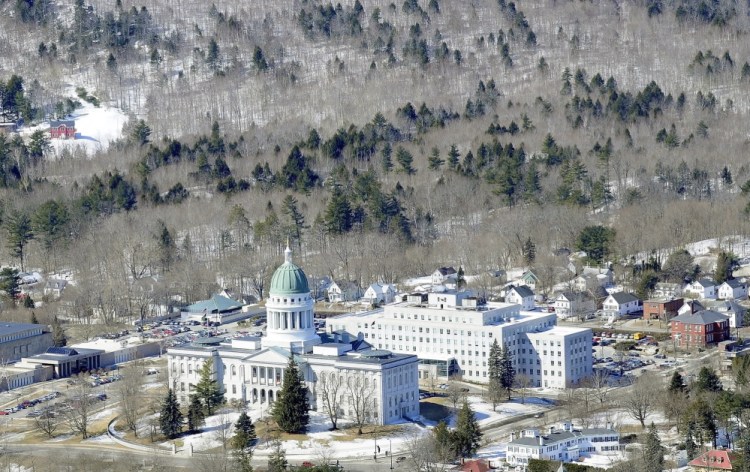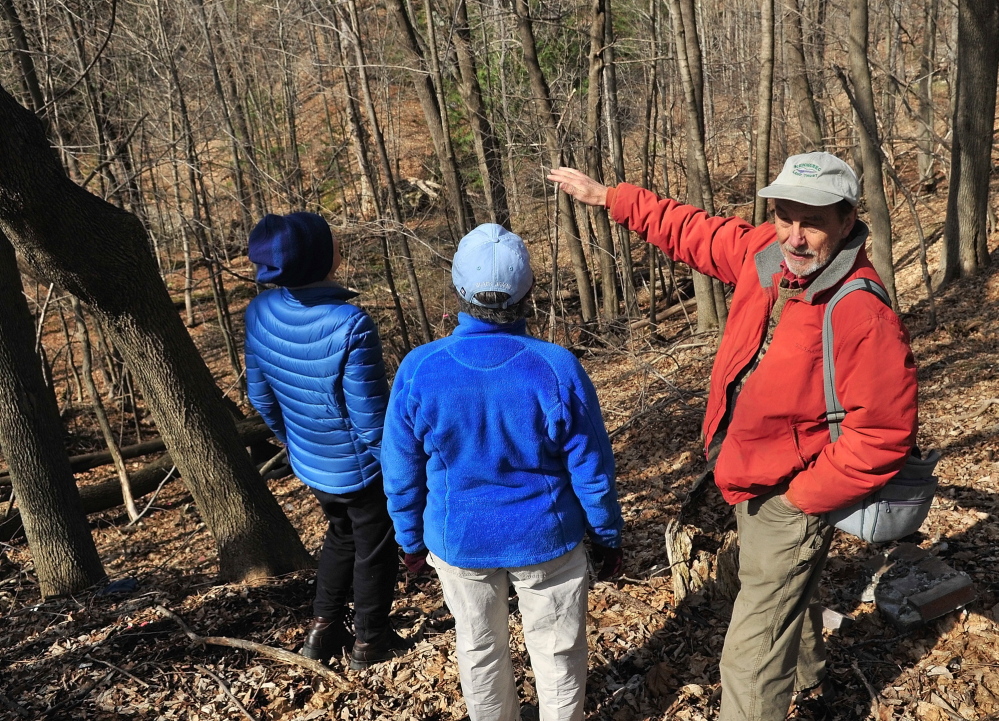AUGUSTA — City councilors voted Thursday night to accept the donation of the 164-acre Howard Hill property, which provides a scenic wooded backdrop to the State House and which prompted a good deal of heated debate within the State House’s walls.
Councilors voted unanimously Thursday to receive the largely undeveloped property from the Kennebec Land Trust, and the city and the locally based land trust could close a deal to transfer the property as soon as Friday.
The terms of the agreement conveying the land specify the property never shall be developed or subdivided, shall have its natural resources protected, and shall remain open to the public.
“This is just a tremendous example of public-private partnership,” said Augusta resident Michael Seitzinger, a former land trust board member. “The result here for the people of the city of Augusta, the entire capital community, and the entire state of Maine, is outstanding.”
Gov. Paul LePage and members of his administration, over the last year, have criticized the Land for Maine’s Future program for overpaying for properties, and specifically cited Howard Hill as an example.
The Kennebec Land Trust bought the land for about $925,000 from local attorney Sumner Lipman in 2015, with plans to give the property to the city.
The land trust initially was expected to use $337,500 in Land for Maine’s Future money to help pay for the purchase. However, Land for Maine’s Future funding for the $1.2 million project was slashed from the previously promised $337,500 to $163,500 last October,
Five of six members of the Land for Maine’s Future Board, all of whom were either appointed by LePage last year or work for him, voted to reduce the state’s contribution to the project, expressing concerns about the accuracy of the roughly $1 million appraisal of the property, The property is assessed by the city, for tax purposes, at $171,000.
Land trust officials have defended what they pay for such properties, stating they have the properties professionally appraised, based upon their “highest and best use,” or what their value would be if they were to be developed.
The trust took out a loan to close the funding gap so the project could proceed.
The originally proposed terms of the agreement with the city stated the privately funded land trust would give the city, in addition to the land, a $100,000 endowment to help the city form a plan for the property and to maintain it.
However, since the state reduced its funding of the purchase, the land trust proposed to modify its agreement with the city.
Instead, the land trust, according to City Manager William Bridgeo, will give the city $25,000, will be credited $7,500 it spent to have a forest management plan done for the property, and will pay the city the remaining $67,500 in the next two years. City officials said they accept the arrangement and have no doubt the land trust will pay the remaining money as promised.
“Some roadblocks were placed along the way, and you folks overcame them,” Mayor David Rollins told land trust officials. “This will be a treasure for the city of Augusta, one of our collection of gems.”
Theresa Kerchner, executive director of the Winthrop-based land trust, said people in the area have suggested for decades that the land needed to be preserved.
Kerchner said numerous individuals, businesses and foundations donated money so the trust could buy the land.
The property is named for the family of Capt. James Howard, one of the founders of Augusta. It was later owned by local publishing magnate William Howard Gannett, who in the 1890s bought some 450 acres, including Howard Hill, where he created Ganneston Park. The park included gardens, ponds, carriage paths and trails he opened to the public. The property, tucked between developed parcels in Augusta and extending to the Augusta-Hallowell city boundary, provides sweeping views of the area, including the Maine State House dome.
City officials said a plan will need to be developed to provide public access points to the property. Among the limited existing access points is an old carriage road where Ganneston Drive comes to a dead end.
Kerchner said the land trust already has had discussions with the developer of the formerly state-owned Stevens School campus in Hallowell, Matt Morrill, about also providing public access to Howard Hill from the proposed development there.
Terms of the proposed agreement require the city to complete a conservation plan within a year of receiving the property.
Keith Edwards — 621-5647
Twitter: @kedwardskj
Send questions/comments to the editors.





Comments are no longer available on this story